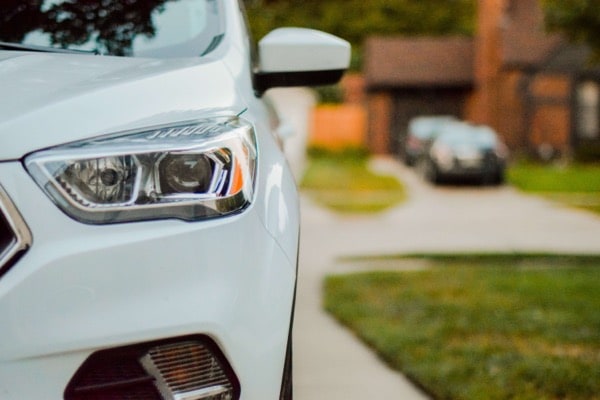Comprehensive Coverage and How It Works
Comprehensive Coverage and How It Works
 Comprehensive coverage along with collision coverage is a type of automobile insurance that you’re not legally required to have – as you are legally required to have bodily injury liability and property damage liability minimum coverages – but which you may be separately required to carry if you are leasing a vehicle or paying on an auto loan. In both these instances, the company with whom you share an interest in the vehicle – the leasing company or lender – wants to be assured that its financial interest in the car is protected from loss.What is Comprehensive Coverage?
Comprehensive coverage along with collision coverage is a type of automobile insurance that you’re not legally required to have – as you are legally required to have bodily injury liability and property damage liability minimum coverages – but which you may be separately required to carry if you are leasing a vehicle or paying on an auto loan. In both these instances, the company with whom you share an interest in the vehicle – the leasing company or lender – wants to be assured that its financial interest in the car is protected from loss.What is Comprehensive Coverage?Whereas collision coverage protects you (and/or your lessor/lender) from damage to the vehicle that occurs in a collision with another vehicle, comprehensive coverage protects you when your vehicle sustains other types of losses. In general, this includes theft, vandalism, weather damage, and damage from hitting an animal. It frequently also covers glass or windshield damage, especially with insurance companies that don’t offer separate glass coverage options.
What is the Cost of Comprehensive Coverage?The cost of comprehensive is tied very directly to the value of your vehicle – the more valuable the car, the more expensive the coverage. One way to reduce the cost of comprehensive coverage is to increase your deductible – the portion of any repair or replacement charge that you have to pay before your insurance kicks in. Increasing the deductible can significantly reduce the coverage cost. Just recognize that you may be on the hook for a higher out-of-pocket cost if you actually have a loss.
Another way to manage the cost of comprehensive coverage is to eliminate it entirely. If you own your vehicle outright, then no leasing company or auto lender is requiring you to pay for comprehensive coverage. But remember, this is betting that you can cover the entire repair or replacement cost if something happens to your vehicle. This option is more commonly taken with much older vehicles where the total value of the car has declined substantially – that is, where the value actually being covered is becoming smaller and smaller compared to the recurring cost of the insurance plus the deductible amount.
Similar to Collision CoverageThis same calculation comes into play with collision coverage and whether to carry that coverage if you own your vehicle outright. But with collision coverage, someone who hits your vehicle is at least likely to carry some property damage (PD) liability insurance, since $5,000 of PD coverage is required by law. The deer who runs out onto the road in front of you, however, is very unlikely to be carrying any insurance coverage to make up for your lack of comprehensive insurance. There typically isn’t any other source of payment available for the types of damage (theft, vandalism, weather, animal) covered by comprehensive insurance.
How Do I Use My Comprehensive Coverage?As with collision coverage, using your comprehensive coverage is typically just a matter of presenting your insurance company with evidence of your vehicle damage or loss. In the case of vehicle theft, this may be only a matter of submitting a copy of a theft report made to the police. In the situation of weather damage or an animal impact, it would usually be a repair estimate from an auto body shop that details the nature of the damage and the cost of repairs. For a damaged vehicle, your insurance company may also want to inspect the vehicle directly.
If the Damages Are LowerIf the amount of damage is sufficiently less than the fair market value of the vehicle, then your insurance company will pay for repairs, less the amount of your deductible. Depending on how your policy is written, they may offer a different amount for repairs if you don’t choose to use a body shop on their “approved” list, but the choice of repair location is always yours. Read your policy language to know what the requirements are for you.
If the Damages Are HigherIf the amount of damages is high enough (or for a stolen vehicle), your insurance company will offer you the amount they value your car at, minus your deductible. The amount of vehicle valuation is undoubtedly something that you can negotiate with your insurance company. Still, you’ll need some substantial evidence as to why you think your vehicle is worth more to get them to move much in their valuation. Typically, this is by finding identical or comparable vehicles sold or for sale in your area for a greater value, or by noting specific details of your vehicle that may enhance its value, such as a premium sound system or styling package that your insurer hadn’t taken into account.
Additional ResourcesFor information on more of the coverages you may (or should) have on your automobile insurance policy, check out:
- Collision coverage
- Liability coverage
- Uninsured motorist (UIM) coverage
- Underinsured motorist (UIM) coverage
- Medical payments (med-pay) insurance
- Gap coverage
- Umbrella insurance coverage
And for more information on insurance companies, their claim tactics, and how an experienced personal injury attorney should deal with them, see:
- Insurance Company Tactics — Dirty Tricks Insurance Companies Play in Accident Claims
- Our Tools — How an Experienced Personal Injury Attorney Deals with Insurance Company Tactics
- The Insurance Industry and Individual Companies — Huge and Hugely Profitable